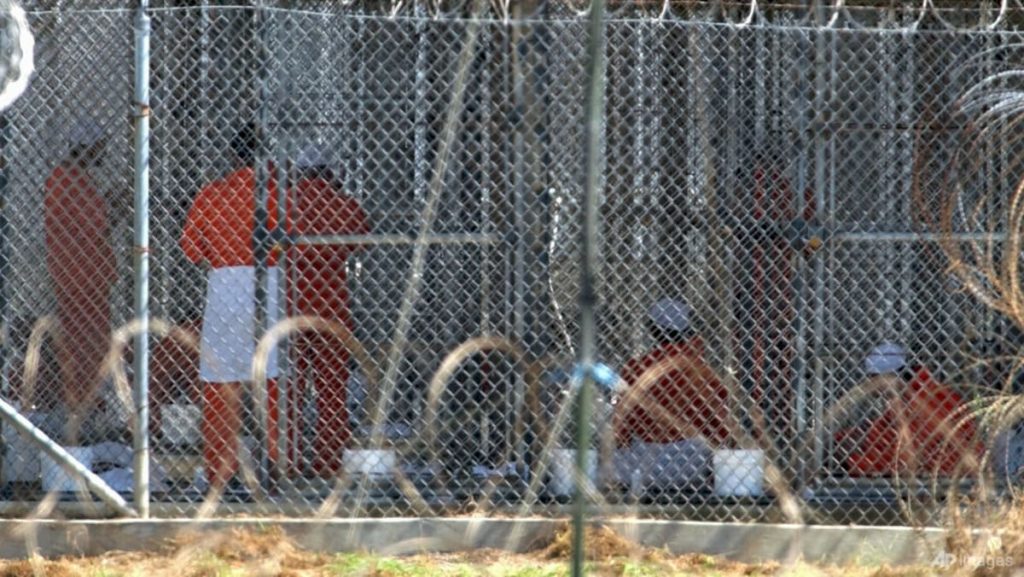The repatriation of two Malaysian citizens, Mohammed Farik Amin and Mohammed Nazir Lep, from the Guantanamo Bay Detention Centre after 18 years of detention marks a significant step towards their reintegration into Malaysian society. Detained since 2006 for their involvement in the 2002 Bali bombings, their return follows a plea agreement reached earlier this year where they admitted to conspiracy charges, leading to a 23-year sentence with the possibility of release after five years and repatriation. Malaysia’s Home Minister, Saifuddin Nasution Ismail, has emphasized the government’s commitment to a comprehensive deradicalization and rehabilitation program for the two men. This program, underpinned by principles of human rights and universal justice, aims to provide a structured pathway for their successful return to civilian life.
The Malaysian government’s rehabilitation plan is a three-pronged approach designed to facilitate a smooth transition back into society. The initial phase focuses on providing a controlled environment where the two individuals can adjust to life outside detention. This controlled environment will likely involve structured routines, access to counseling and psychological support, and a gradual reintroduction to social interactions. The second phase centers on reintegrating them into their family life, fostering crucial support networks and rebuilding relationships strained by years of separation. The ultimate goal of the program is to empower them to become independent and productive members of the community. This final phase likely involves vocational training, job placement assistance, and continued monitoring to ensure their successful and sustainable reintegration.
Complementing the rehabilitation plan is a robust monitoring system implemented by the police. Regular visits and assessments will track their progress, ensuring adherence to the program and addressing any challenges that may arise. This monitoring also serves as a safeguard for their well-being and ensures that they remain on a path towards successful reintegration. The continuous engagement by law enforcement demonstrates the government’s commitment to not only their rehabilitation but also to the safety and security of the community.
The Malaysian government’s approach, as outlined by Minister Saifuddin, emphasizes the values of the “Madani government,” which prioritizes second chances and social justice. This commitment to rehabilitation underscores a belief in the potential for individuals to change and contribute positively to society, even after involvement in serious crimes. The focus on second chances and social justice reflects a broader effort to address the root causes of extremism and promote a more inclusive and just society. By offering a pathway to redemption, the government aims to prevent recidivism and foster a sense of hope for a better future.
The case of Farik and Nazir, who spent years in solitary confinement following their arrest in Thailand in 2003, highlights the complexities of the Guantanamo Bay detentions. They, along with many others held at the facility, were detained for extended periods without trial. Their eventual plea bargain, which involved testifying against the alleged mastermind of the Bali bombings, Encep Nurjaman (also known as Hambali), facilitated their repatriation. Hambali, the former leader of the Jemaah Islamiyah, a group affiliated with Al-Qaeda, remains in Guantanamo. This convoluted legal process underscores the challenges and controversies surrounding the detention and prosecution of individuals suspected of terrorism.
The repatriation of Farik and Nazir to Malaysia and the subsequent rehabilitation program mark a significant development in their lives and represent a complex undertaking for the Malaysian government. Balancing the need for security and public safety with the principles of human rights and rehabilitation presents a delicate challenge. The success of this endeavor will not only impact the lives of these two individuals but also serve as a case study for future repatriation and reintegration efforts. The commitment of the Malaysian government to providing a second chance and promoting social justice sets a precedent for other nations grappling with similar issues. The ongoing monitoring and support provided by the authorities will be crucial in determining the long-term success of this rehabilitation effort and the eventual reintegration of these two individuals back into Malaysian society.

